The Independent's journalism is supported by our readers. When you purchase through links on our site, we may earn commission. Why trust us?
10 best external hard drives and SSDs to supercharge your storage
PC or Mac getting sluggish? PS5 or Xbox running out of space? You need one of these trusty gadgets
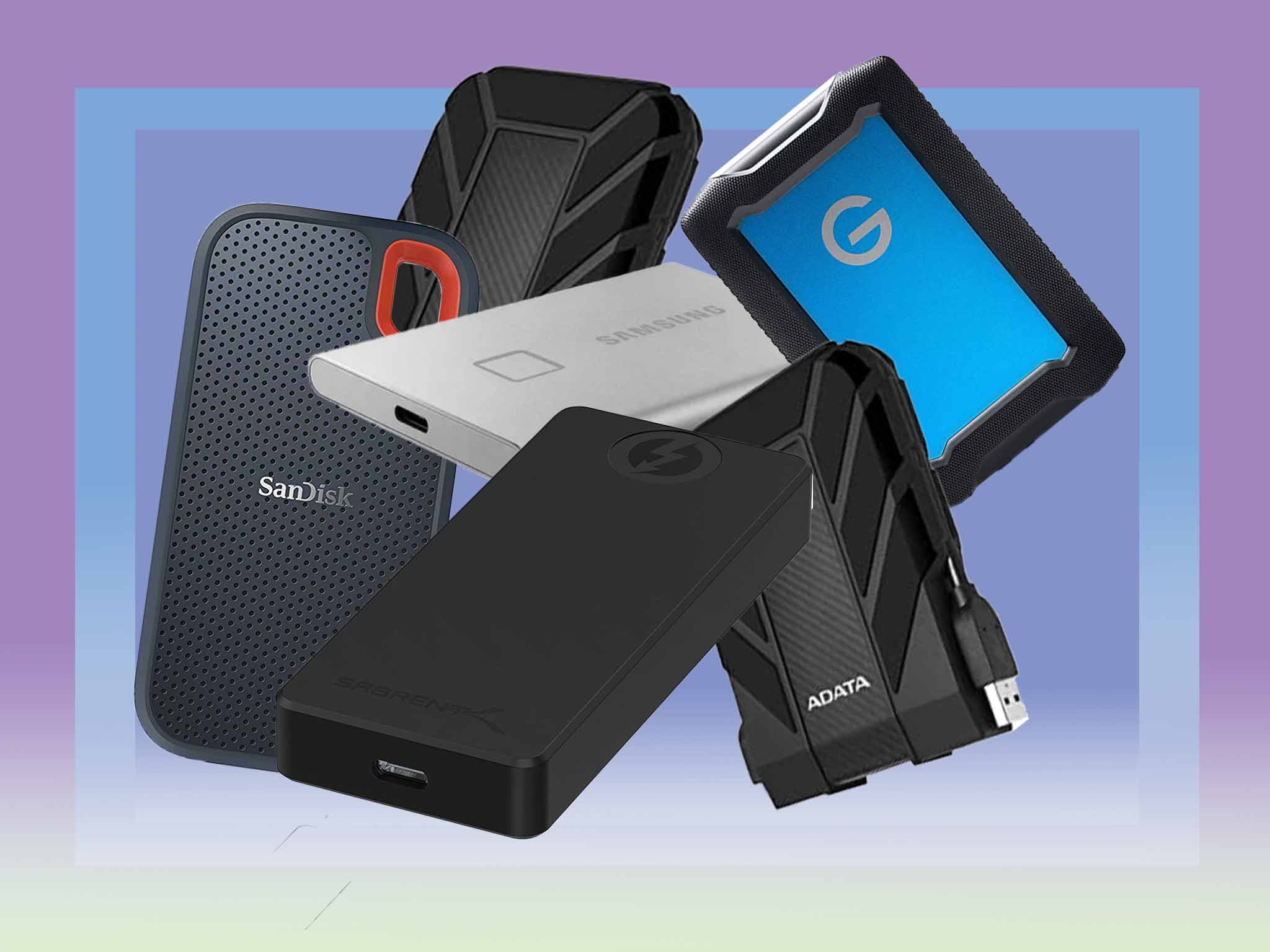
Remember when the cloud sounded like it’d fix all your storage problems forever? Bin your flash drives, frisbee your CDs into a skip, forget floppy disks – the cloud is here.
Nope. Sorry. A physical place to put all your photos, videos or music collection, or to store hefty folders of work that need protecting from accidental wiping or possible hacking, remains a very good idea. If you want to know for a fact that the digital bits and pieces you’d like to preserve will still be here in years to come, an external hard drive (HDD), or, increasingly, a solid stage drive (SSD) is becoming a necessity.
That’s not the only reason you ought to be looking at extra external storage, either. Noticed that your laptop has started running slower and slower? Investing in a decent external hard drive or SSD is a cheaper alternative to renewing your machine – farming out some of the data and files you want to keep but don’t dip into all the time helps give an older machine a new lease of life.
If you want to store extra games on your PS5 or Xbox Series X/S, you’ll want to invest in a hard disk drive or an SSD too, or risk running out of internal storage – you can get both plug and play external drives and internal ones that can be installed into your games console.
Before you select one, there are a few things to consider. For starters, do you need a hard disk drive or an SSD? You could be forgiven for thinking external storage systems are roughly identical black boxes, and the only difference between them is the number of LEDs they have. However, there’s a fair amount more to it than that.
If you’re serious about laying down data for the next few decades, SSDs are the better bet. They’re still more expensive per gigabyte of storage than HDDs, but as they’re not reliant on mechanical parts to write data, they’ll be more stable, and the speeds at which they read and write data is significantly faster.
HDDs, however, put your data on a spinning disc, which means they’re more likely to fail or degrade sooner than an SSD, which holds data on flash memory chips. While SSDs are slowly coming down in price as the technology matures, HDDs are still cheaper on the whole.
How your drive connects to your computer matters, too: USB 2 is slowish; USB 3 is fast; Thunderbolt is the fastest, and USB 3.2 is basically the same as USB-C – if you’ve only got USB-C ports on your laptop. Other than that, the only thing that really matters is that the SSD or hard drive you pick is solid and reliable. Nobody wants anything particularly exciting from their storage options – the more boringly efficient and stable, the better.
One last thing – Mac users will have to reformat the majority of external drives to make them work with macOS – Macs don’t support NTFS (Windows’ file storage system) – but it’s a pretty pain-free process that should only take a few minutes.
How we tested
During several hours of usage, we checked over the SSDs and hard drives for ease of use, build quality and to what extent any handy extra features improved the experience of using the unit. The speed of writing a variety of data to the device was also compared with what was promised by each unit, as was the overall look and feel of each hard drive.
The best external hard drives and SSDs for 2023 are:
- Best overall – Sabrent rocket XTRM-Q: £429.46, Amazon.co.uk
- Best cheap external hard drive – Western Digital elements portable: £42.99, Westerndigital.com
- Best external SSD for Xbox – Seagate game drive SSD: £139.80, Amazon.co.uk
- Best external SSD for security – Samsung T7 touch external SSD: £89.99, Amazon.co.uk
- Best SSD for PS5 – WD_Black SN850X NVMe SSD: £112.90, Westerndigital.com
1Sabrent rocket XTRM-Q

- Best Overall
- Type Solid state drive
- Dimensions 133mm x 98.5mm x 26.7mm
- System compatibility Windows 7 and later, Mac OS X 10 and later
- Data capacities available 500GB, 1TB, 2TB, 4TB, 8TB
- Connectivity Thunderbolt 3, USB 3.2, USB-C
Yes, it’s towards the top end of what you can expect to pay for an external storage, but this is a solid state drive, so it’s all that much faster. What you get for your slightly wince-inducing price point is an exercise in quietly impressive competence.
You don’t need any extra drivers to get going, and the solid aluminium construction helps keep the internal temperature down while protecting the innards properly. Data transfer speeds are, for a drive named “rocket”, appropriately stratospheric.
2Western Digital my passport

- Best External hard drive
- Type Hard disk drive
- Dimensions 110mm x 81.5mm x 21.5mm
- System compatibility Windows 10, 8.1 and 7
- Data capacities available 1TB, 2TB, 3TB, 4TB
- Connectivity USB 2.0 and 3.0
Western Digital’s my passport is just a little broader than a passport and available in sizes as thin as 13.8mm, so it’s one to bear in mind if you’re after something to take with you when you head for a work-from-café day.
Worried about what happens if you leave it lying around? It’s password-protected, so, should anyone plug your my passport into their machine, they’ll be greeted with instructions on what to do to return it to you. Plus, it comes in an array of six colours – and that’s about as exciting as external hard drives get. Mac users will need to get the dedicated my passport for Mac models, though (£69.99, Westerndigital.co.uk).
3Western Digital elements portable

- Best Cheap external hard drive
- Type Hard disk drive
- Dimensions 111mm x 82mm x 15mm
- System compatibility Windows 10, 8.1 and 7
- Data capacities available 500GB, 750GB, 1TB, 1.5TB, 2TB, 3TB, 4TB, 5TB
- Connectivity USB 2.0 and 3.0
The little brother of Western Digital’s beefy elements SSD is a straight-down-the-line, no-frills model, which packs a hefty pound-for-pound storage to price ratio.
Slightly irritatingly, you’ll have to subscribe to WD’s automated back-up service to keep it after your 30-day trial, and there’s no encryption or password protection here. Nevertheless, if you want a cost-effective way to whack a load of photos and videos away safely, this is a solid option.
4Crucial X8 SSD

- Best SSD for compatibility
- Type SSD
- Dimensions 110mm x 53mm x 11.5mm
- System compatibility Windows 10, macOS, Linux, iPad Pro, PS5, PS4, Xbox Series X/S, Xbox One
- Data capacities available 1TB, 2TB, 4TB
- Connectivity USB 3.2, USB-C
If you want an external SSD that works with your entire suite of gadgets, look no further than the slim and stylish Crucial X8 portable external SSD. It works with Windows 10, macOS, Linux, Chromebooks, the Apple iPad Pro, Android devices, as well as the PS5, PS4, Xbox Series X/S and Xbox One. This beauty of an SSD works with everything and everything, and, frankly speaking, we had difficulty finding a device with which it didn’t work.
It feels durable, and while it’s not the smallest or the lightest SSD, its speed is phenomenal, and we were pleased with how easy it was to use. The best part? It’s a fairly cheap bit of kit for an SSD that gets you storage sizes from 1TB and up. It does the job, and it does it well.
5SanDisk extreme portable SSD

- Best External SSD for portability
- Type Solid state drive
- Dimensions 96.3mm x 49.5mm x 89mm
- System compatibility Windows 8, Windows 8.1, Windows 10 and Mac OS
- Data capacities available 250GB, 500GB, 1TB
- Connectivity USB-C
If you’re after something truly titchy, SanDisk’s extreme portable is a little longer than a credit card and clocks in at a shade over 40g. Pop a carabiner through its loop, hook it to your belt, and you’re away.
The rubberised cover is reassuringly tactile and prevents most minor bumps, and you’ll struggle to find a more straightforward piece of kit. Just plug in, install the security kit – which includes the ability to password protect your data – and drag and drop.
6Seagate game drive

- Best External SSD for Xbox
- Type Solid state drive
- Dimensions 9.35cm x 7.9cm x 0.91cm
- System compatibility Xbox Series X/S and Xbox One
- Data capacities available 500GB, 1TB, 2TB, 4TB, 5TB
- Connectivity USB 3.0
If your Xbox Series X is running out of space and you’re desperately trying to install Hogwarts Legacy onto your machine, we’d recommend getting the Seagate game drive SSD. It wouldn’t look out of place sitting on top of your Xbox Series X, with its compact all-black design. It’s an SSD, what do you expect?
It’s easy to set up, plugging neatly into the USB 3.0 port on your Xbox, and is portable enough to be brought to your mate’s house. Plus, this Seagate SSD comes with a limited-time subscription to Xbox Game Pass, meaning you can play more than 100 games absolutely free. While it’s designed for use with the Xbox, you can hook it up to your PC, too.
7SanDisk Professional G-Drive ArmorATD

- Best Hard drive for durability
- Type Hard disk drive
- Dimensions 130mm x 87mm x 21mm
- System compatibility Windows 10, 8.1 and 7, Mac OS
- Data capacities available 1TB, 2TB, 4TB, 5TB
- Connectivity USB 3.0
The “ATD” here stands for “all-terrain drive”, which makes it sound much more like it could compete in the Paris-Dakar Rally than seems likely. But the point is that this is an HDD that can take a battering.
It isn’t the fastest out there, but with three layers of shock resistance – an outer rubber bumper, aluminium casing that can withstand 1,000lb of crushing force, and internal shock mounts – it should stand up to the efforts of even the most hopelessly butterfingered digital archivist. Upload speeds are reliably swift, too.
8Adata HD710 pro
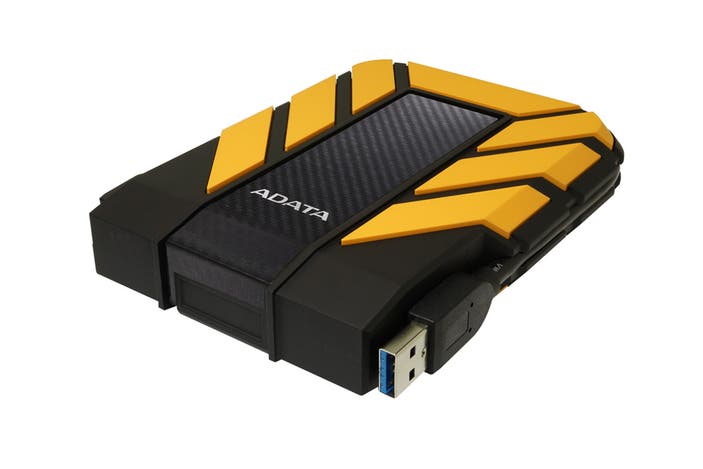
- Best Hard drive for extreme conditions
- Type Hard disk drive
- Dimensions 133mm x 98.5mm x 26.7mm
- System compatibility Windows 7 and later, Mac OS X 10
- Data capacities available 1TB, 2TB, 4TB, 5TB
- Connectivity USB 3.2 Gen 1, USB-C
Proving again that external hard drives needn’t be totally soulless, inscrutable bits of greyish metal, this is a gnarly-looking bit of kit with a performance to match.
Beyond its good looks, it can withstand a tumble to the floor from 1.5m, and can deal with being submerged in 2m of water for up to an hour. More than that, shock sensors inside the HD710 pro will stop any activity inside the hard drive if there’s a severe enough jolt. That means no damaged data and a longer life span for the mechanical parts. The cable holder that runs round the outside is neat, too.
9Samsung T7 touch external SSD

- Best External SSD for security
- Type Solid state drive
- Dimensions 57mm x 85mm x 8mm
- System compatibility Windows 7 and higher, Mac OS X 10 and higher
- Data capacities available 500GB, 1TB, 2TB
- Connectivity USB 3.2 Gen 2, USB-C
You can never be too careful with your data, and as much as you might hope that a hard drive wouldn’t be of much interest to your common or garden thief, businesses and freelancers will feel a lot more secure knowing they’ve got something more substantial than crossed fingers keeping their secrets secret.
The T7 touch features fingerprint-recognition security and AES 256-bit encryption, and it’s slim enough to slip into a trouser pocket.
10Western Digital WD_black SN850X NVMe SSD

- Best SSD for PS5
- Type Internal SSD
- Dimensions 20mm x 22mm x 2.38mm
- System compatibility PS5 (heatsink model only), Windows 8.1 and above
- Data capacities available 1TB, 2TB, 4TB
- Connectivity M.2
All right, this one’s not an external SSD, but Western Digital’s latest and greatest internal SSD is worth a mention. The SN850X is one powerhouse that’ll keep up with the performance of your PS5. Speeds on this thing are wild, featuring up to 7,300 MB/s with barely any load times.
You can get it with or without a heatsink, but if you get the model with the heatsink, games will continue to run at their peak throughout your sessions, drawing heat away from the machine. Installation can be a little fiddly, but after a 15-minute tinkering session, we were all set up, and able to launch games right from the SSD in a snap. It’s tiny, and light as a feather, too.
The verdict: External hard drives and SSDs
The key thing to weigh up is exactly what ratio of pounds to storage space you’re prepared to pay for. If you’re on a budget and just want to stick stuff away for safekeeping, a hard disk drive such as the Western Digital elements portable will serve your needs ably, with good build-quality and solid functionality at a very handy price point. Need more access more often? The Western Digital my passport is a good everyday option.
However, if you’re prepared to spend a little more, the difference in performance between the ones above and the Samsung’s T7 touch or the Sandisk extreme portable SSD is noticeable, and you’re less likely to need to back-up all over again in a few years’ time. Now, you can get fairly inexpensive SSDs as well, such as the Crucial X8.
If price makes no odds to you, though, and you’re after a serious piece of kit that will hang onto your data for the foreseeable future, it’s hard to see past the Sabrent rocket – fast, simple to use, solidly made and unfussy.
Compare the best broadband packages with Independent Advisor
Browse the best tablets from Apple, Microsoft and more









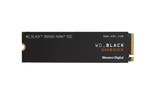
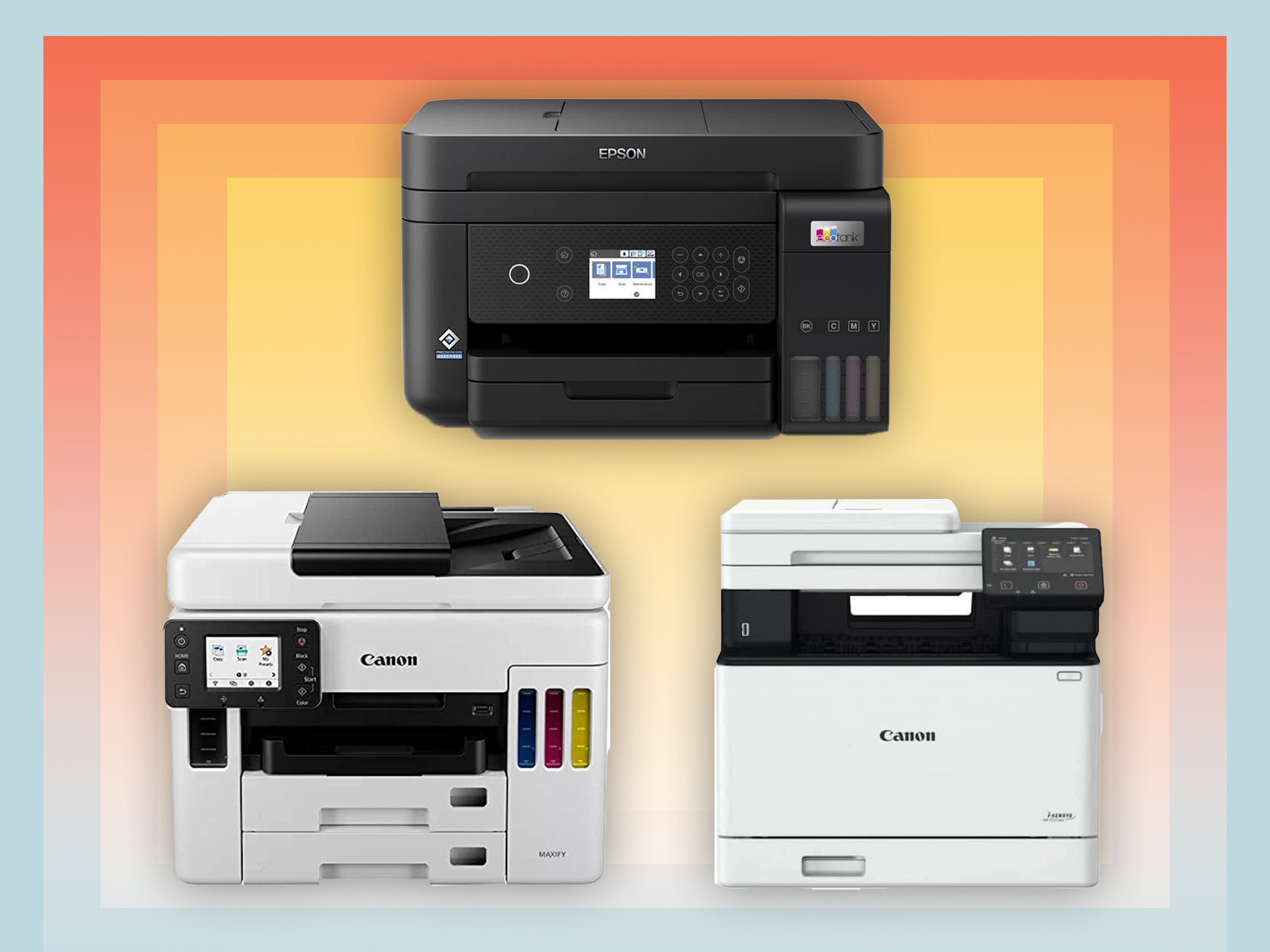
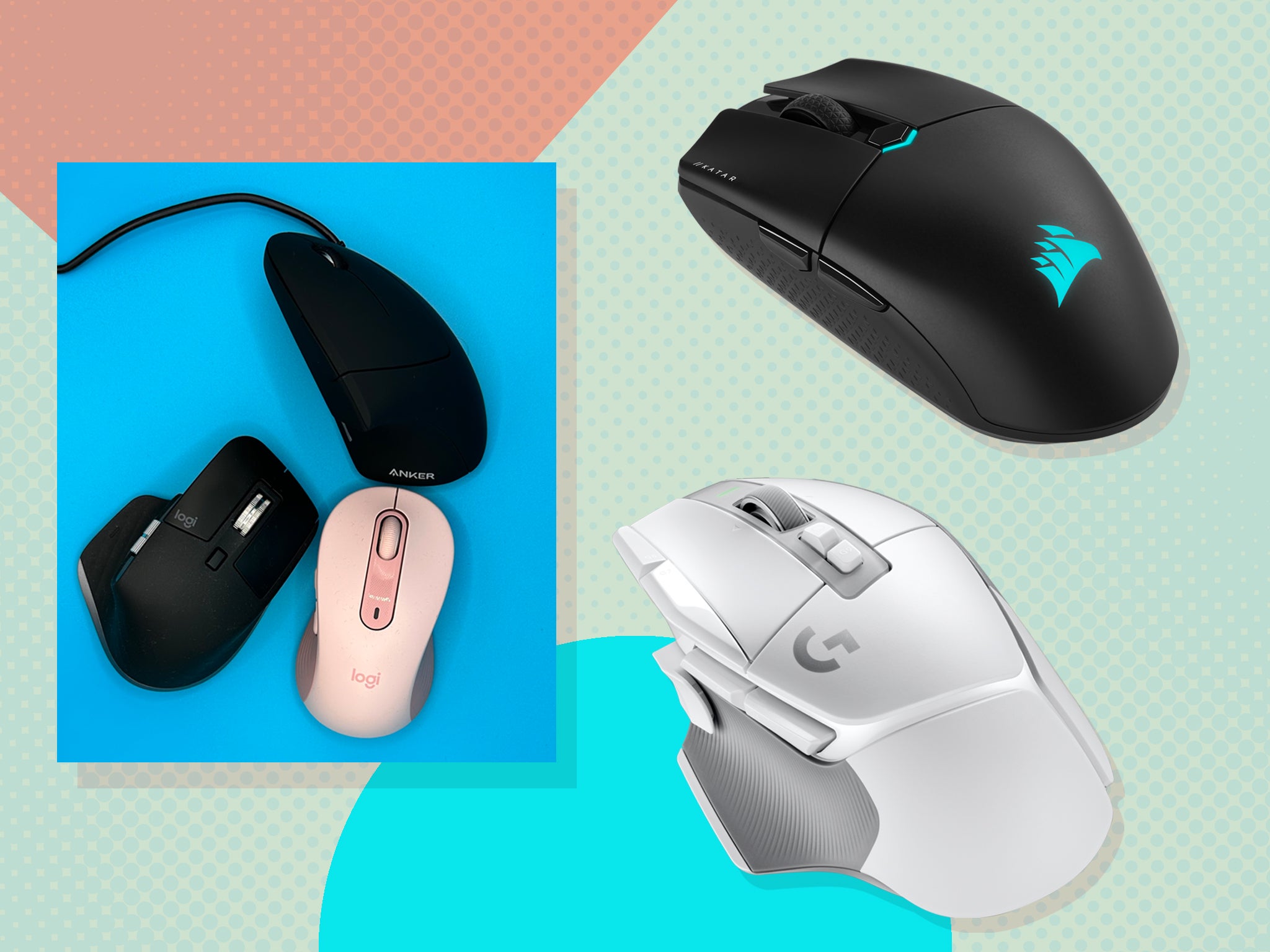
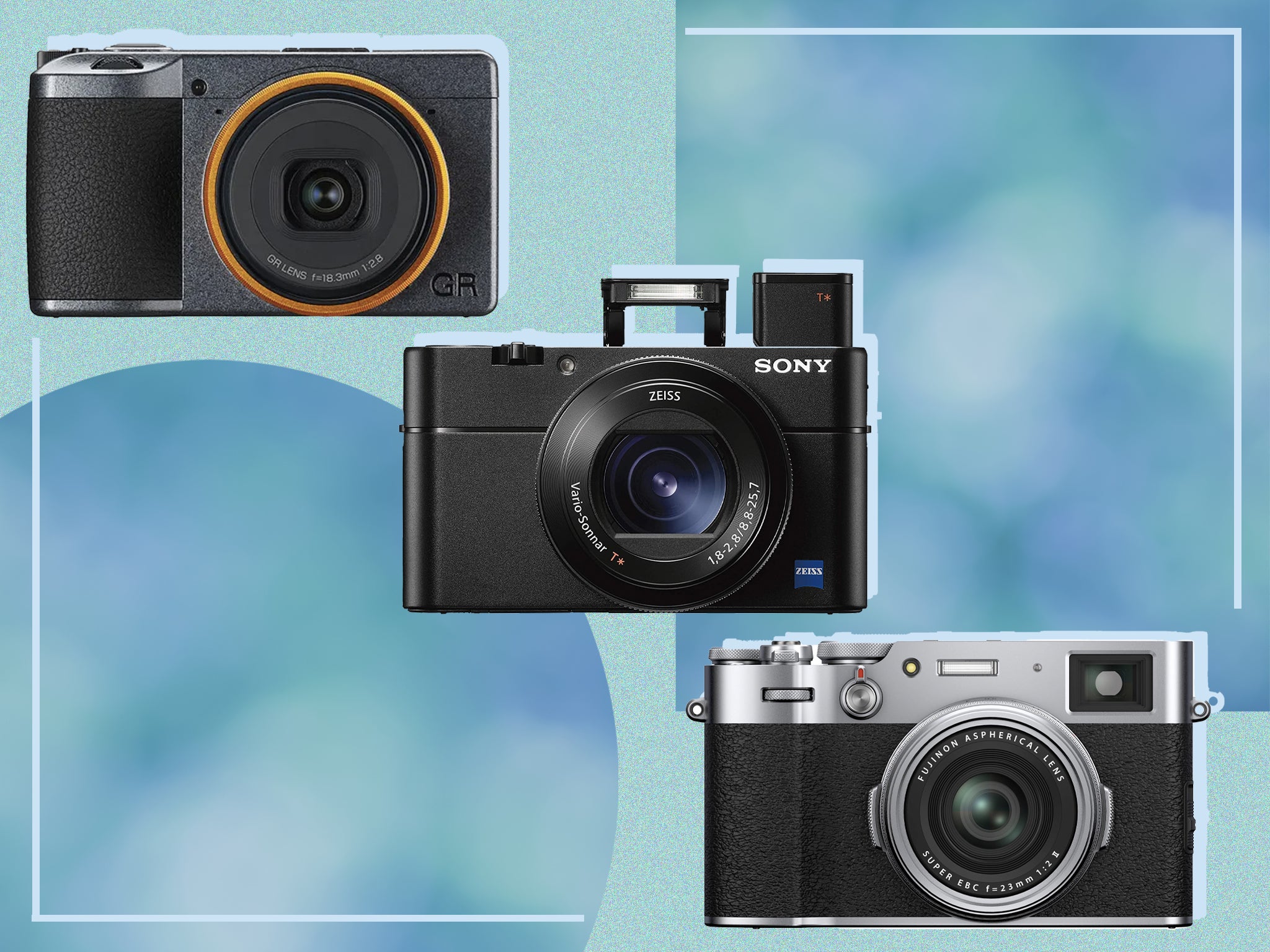

Bookmark popover
Removed from bookmarks